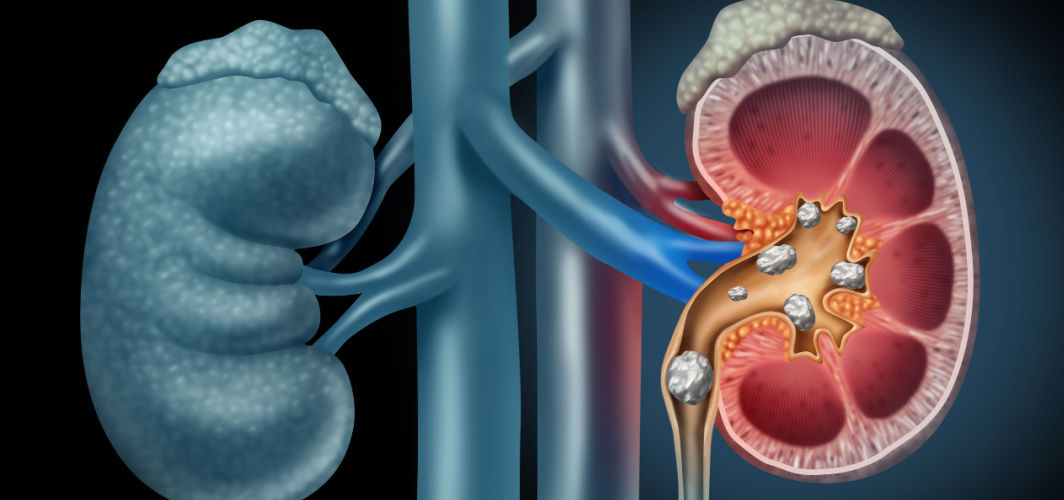General Health
Looking Unusually Pale or Getting Tired Quickly? Your MCH Blood Levels May Need Checking
6 min read
By Apollo 24|7, Published on - 29 May 2025
Share this article
0
0 like
.jpg?tr=q-80)
Persistent tiredness, pale skin, or shortness of breath despite adequate sleep and a balanced diet can be early indicators of an underlying health issue. One important factor that could be at play is the Mean Corpuscular Haemoglobin (MCH) level in your blood. If your doctor suspects anaemia or a related disorder, they may suggest a MCH blood test as part of your diagnostic work-up.
So, what is MCH in blood test reports, and how does it relate to your symptoms? In this article, we’ll explore the importance of MCH in diagnosing fatigue-related conditions, what the test measures, what abnormal values indicate, and what steps you should take if your results are outside the normal range.
What is MCH in Blood Test and Why Is It Important?
The term MCH stands for Mean Corpuscular Haemoglobin. It is a measure of the average amount of haemoglobin contained in each of your red blood cells. Haemoglobin is the essential protein that helps carry oxygen from your lungs to the rest of your body. Adequate haemoglobin levels are crucial for maintaining energy levels, healthy skin tone, and optimal organ function.
The MCH blood test is typically included in a Complete Blood Count (CBC) panel and is one of several red blood cell indices that provide deeper insight into your overall blood health. The MCH test can help:
- Diagnose Anaemia: Low MCH values are commonly associated with iron-deficiency anaemia. This occurs when your body doesn’t have enough iron to produce healthy haemoglobin.
- Identify Nutritional Deficiencies: High or low MCH levels can point to deficiencies in iron, folate, or vitamin B12.
- Monitor Chronic Illnesses: Conditions like kidney disease, cancer, or inflammatory disorders can affect red blood cell production and alter MCH values.
- Detect Genetic Blood Disorders: Inherited conditions like thalassaemia or sickle cell anaemia often present with abnormal MCH levels.
How to Prepare for an MCH Test?
Preparing for the MCH blood test is quite straightforward. As it is part of a Complete Blood Count (CBC), the test simply requires a small blood sample. However, following a few simple steps can help ensure the most accurate results:
- Fasting: Fasting is usually not necessary for an MCH blood test. However, if the test is being done alongside other blood panels (like a lipid profile or glucose test), your doctor may advise fasting. Always follow the guidance of your healthcare provider.
- Medications: Inform your doctor about any medications or supplements you are currently taking. Some medicines, especially those affecting red blood cell production, like iron supplements, chemotherapy drugs, or vitamin B12 tablets, can influence MCH levels.
- Hydration: Drink plenty of water before your appointment. Good hydration can make it easier for the technician to locate a vein and collect a sample quickly and efficiently.
- Alcohol: Try to avoid alcohol for at least 24 hours prior to the test, as excessive drinking may interfere with your red blood cell health and could skew the results.
- Comfortable Clothing: Wear clothing with sleeves that can be easily rolled up to allow easy access to a vein in your arm. This will help make the process smoother and more comfortable.
Have more questions?
What Happens During the MCH Blood Test?
The MCH blood test is quick and typically carried out at a clinic, hospital, or diagnostic laboratory. Here's what you can expect:
- Cleaning the Site: A healthcare professional will first clean the area on your arm, usually the inside of your elbow or the back of your hand with an antiseptic wipe to reduce any risk of infection.
- Blood Draw: A fine needle is inserted into a vein to collect the blood sample. You may feel a quick prick or slight pressure, but the procedure is generally not painful.
- Stopping the Bleeding: Once the sample has been taken, the technician will apply gentle pressure to the site to stop any minor bleeding and then place a plaster or cotton swab over the area.
- Lab Analysis: The blood sample is then sent to a laboratory. Here, technicians measure various components of your blood, including the Mean Corpuscular Haemoglobin (MCH), which indicates the average amount of haemoglobin per red blood cell.
The entire process usually takes less than 10 minutes and you can resume your normal activities immediately afterward unless advised otherwise by your doctor.
Interpreting MCH Test Results and Their Significance
The typical MCH blood test reference range for adults is 27–33 picograms (pg) per red blood cell. Any deviation from this range may suggest an underlying health issue.
Symptoms That May Point to Abnormal MCH Levels
You may be advised to get an MCH blood test if you experience the following symptoms regularly:
- Fatigue and weakness
- Pale or yellowish skin
- Cold hands and feet
- Dizziness or lightheadedness
- Shortness of breath
- Headaches
- Rapid heartbeat
These signs could indicate anaemia or another condition affecting your red blood cells' ability to carry oxygen effectively.
What to Do If Your MCH Levels Are Abnormal?
If your MCH blood test results fall outside the normal range, it may signal an underlying health issue that needs further investigation. Your doctor will assess your full blood report and may request additional tests to pinpoint the root cause. Treatment and management will depend on the underlying condition:
- Iron Deficiency Anaemia: Low MCH levels often suggest iron deficiency. Treatment may include iron supplements and increasing iron-rich foods such as leafy greens, red meat, lentils, and fortified cereals.
- Vitamin B12 or Folate Deficiency: If low MCH is due to insufficient B12 or folate, your doctor may recommend dietary changes or supplementation to restore proper red blood cell function.
- Chronic Illness or Inflammation: Conditions like kidney disease, autoimmune disorders, or chronic infections may influence MCH levels. Addressing the underlying illness can help improve blood health over time.
- Thalassemia or Genetic Disorders: Inherited conditions that affect haemoglobin production can cause consistently low MCH. These usually require ongoing medical monitoring and specialised care.
- Alcohol Use or Liver Disease: Elevated MCH levels may occur with excessive alcohol intake or liver problems. Reducing alcohol consumption and managing liver health are key components of treatment.
In addition to medical interventions, your doctor might suggest lifestyle changes such as improving your diet, quitting smoking, managing stress, and maintaining a healthy weight. Regular monitoring through follow-up blood tests will also help track your progress and adjust treatment as needed.
Conclusion
Feeling unusually pale or getting tired quickly can be more than just a result of a busy lifestyle. These signs may be your body’s way of indicating a potential blood disorder or nutrient deficiency. A MCH blood test is a valuable diagnostic tool that helps identify whether your red blood cells are equipped to carry enough oxygen throughout your body. Knowing what is MCH in blood test reports and interpreting its levels with other red blood cell parameters can guide early diagnosis and effective treatment. Whether you’re dealing with iron deficiency, a chronic illness, or simply feeling persistently weak, checking your MCH levels could be the first step toward recovery.
General Health
Frequently Asked Questions
What is MCH in blood test results?
What is MCH in blood test results?
Why is the MCH blood test important?
Why is the MCH blood test important?
What does a low MCH value mean?
What does a low MCH value mean?
What does a high MCH value mean?
What does a high MCH value mean?
Can lifestyle changes improve MCH levels?
Can lifestyle changes improve MCH levels?
Leave Comment
Recommended for you

General Health
Which Is The Best Oil For Cooking?
Your cooking oil can affect your health adversely. Read to know which oil is best for cooking.
.jpg?tr=q-80)
General Health
Breathlessness? Rule Out These Conditions with Tests
Concerned about breathlessness? Learn about common conditions that cause shortness of breath and the diagnostic tests that can help identify them. Get the answers you need for better health.

General Health
7 Diet Tips to Prevent Kidney Stones
Learn about the best dietary strategies to prevent kidney stones. These tips will help you make lifestyle changes to reduce your risk of developing kidney stones.
Subscribe
Sign up for our free Health Library Daily Newsletter
Get doctor-approved health tips, news, and more.
Visual Stories

Science-backed Home Remedies for Burns and Blisters
Tap to continue exploring
Recommended for you

General Health
Which Is The Best Oil For Cooking?
Your cooking oil can affect your health adversely. Read to know which oil is best for cooking.
.jpg?tr=q-80)
General Health
Breathlessness? Rule Out These Conditions with Tests
Concerned about breathlessness? Learn about common conditions that cause shortness of breath and the diagnostic tests that can help identify them. Get the answers you need for better health.

General Health
7 Diet Tips to Prevent Kidney Stones
Learn about the best dietary strategies to prevent kidney stones. These tips will help you make lifestyle changes to reduce your risk of developing kidney stones.